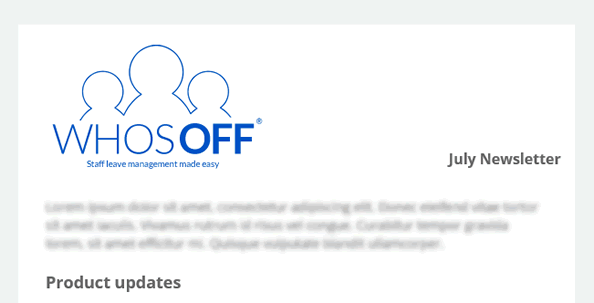Managing staff can be a company’s biggest challenge, with unplanned absences, last-minute holiday requests and calendar clashes often impacting productivity. Most bosses would like to know exactly where their staff will be at any point in time – but short of a crystal ball, there’s no way of knowing this.
Or is there?
WhosOff analysts have looked deep into the archives of our staff leave management software to identify some key trends surrounding employee absence, leave and remote working habits. Here are some of most interesting stats we’ve uncovered, to help senior management anticipate how their workforce is likely to behave.
I don’t like Mondays
Of all types of leave, the biggest source of fear among company bosses tends to be sickness. Without advance warning it can be difficult to plan workload effectively, and there’s also the concern that other people in the business might come down with the same bug.
While most employee illness cannot be helped, and can strike at any time, our number crunching has revealed some interesting peaks in peaky feelings.
For example, our research shows (and it is no surprise!) that employees are more likely to be absent on a Monday than any other day of the week, with sickness rates 17% higher compared to Fridays.
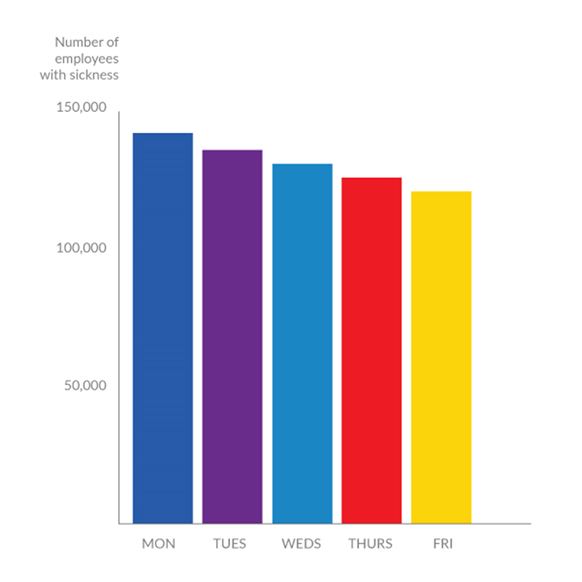
This can be particularly problematic for employers, as Monday is often the day on which critical planning meetings take place, to set the agenda for the week ahead. It can also leave departments playing catch up for the rest of the week.
Home is where the work is
While sickness statistics gradually decline as the week progresses, another challenge grows in the build-up towards the weekend. The number of requests to work from home increase in the latter part of the week, climaxing on a Friday – with 68% more remote working requests than a Monday.
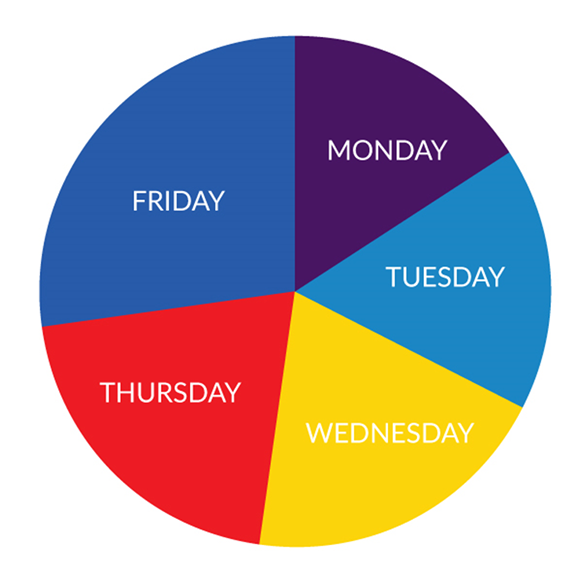
This is not a problem for productivity; a two-year study by Stanford University has found that people who regularly work from home are more productive, more committed and even start work earlier by cutting out the commute.
However, businesses need to ensure that working from home requests are tracked consistently and transparently, to ensure that a dispersed workforce doesn’t impact internal communications and project deadlines.
The season for sickness
In addition to some clear attendance trends throughout the week, our data survey also reveals some interesting month-by-month trends.
For instance, most businesses book-end the calendar year with sickness struggles; Winter is the peak period for staff absence due to illness.
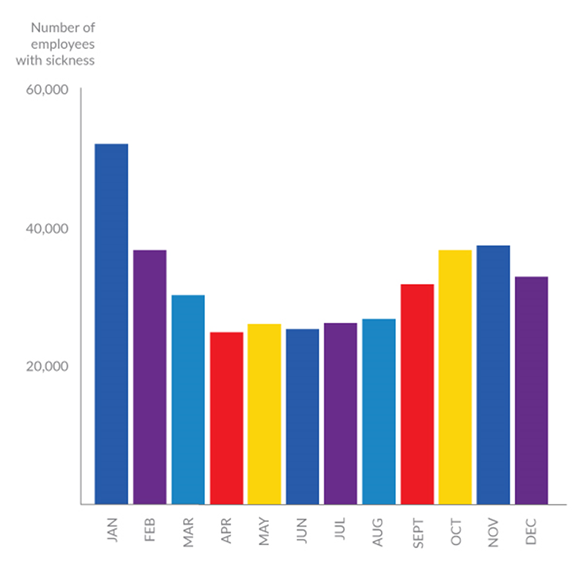
While on the whole January records more absences than any other time of year, the single biggest day of the year for calling in sick tends to fall in during the festive period; more people were too ill to work on Monday 10 December than any other day last year, for example, as pre-Christmas stresses and winter bugs got the better of them.
Given these clear monthly trends, employers need to think carefully about how they will cope with a reduced workforce – especially as December is the busiest month of the year in many sectors. Putting contingency plans in place can make a huge difference to output, especially if an accessible record is being kept on who is in the office from day to day.
Staff are out for summer
While winter may seem to bring its own brand of woes to the business community, summer is not always a walk in the park either.
Although the fair-weather months are least affected by staff illness, with half (52%) the number of absences in June compared to January, summertime brings another challenge for employers to negotiate; annual leave.
Asides from December, when many employees are taking time off for Christmas or using up their remaining holiday entitlement, August is the most popular month of the year for people to take a break.
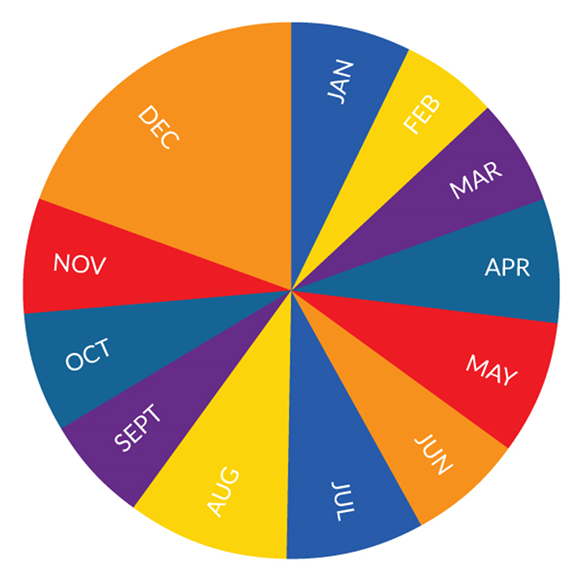
The Friday prior to the August Bank Holiday weekend is the single most popular day for a staff exodus, with WhosOff logging almost 18,000 leave requests for that day alone last year. If trends continue to follow suit, this means the most popular day to take off this summer will be Friday, 23rd August 2019.
In order to ensure a wave of holiday booking doesn’t impact productivity, employers need to put a clear structure in place that requires team members to request annual leave well in advance. And to prevent multiple absences affecting customer service levels, they need a system in place to track who is off at any point in time – to avoid too many senior personnel or people in the same department taking leave at the same time.
Failing to prepare is preparing to fail
These statistics provide some interesting perspectives on global sickness, holiday and remote working trends, however it’s important to appreciate that every business works differently. Last year, WhosOff logged more than 3.2 million annual leave bookings, 327,000 absences, 195,000 working from home requests and 32,000 business trips.
Thousands of organisations use WhosOff to submit, review and approve leave applications, safe in the knowledge that they are managing staff movements as efficiently as possible.
WhosOff enables them to avoid costly calendar clashes, respond to reduced manpower, plan ahead effectively, and understand who is just out of the office – and who’s off altogether. Armed with this knowledge, company bosses can make more effective decisions, and ultimately serve their clients and customers better.
Book a free WhosOff trial to start tracking your staff leave data.
Background photo by Lukas from Pexels.com, all other images are copyright to WhosOff.com

